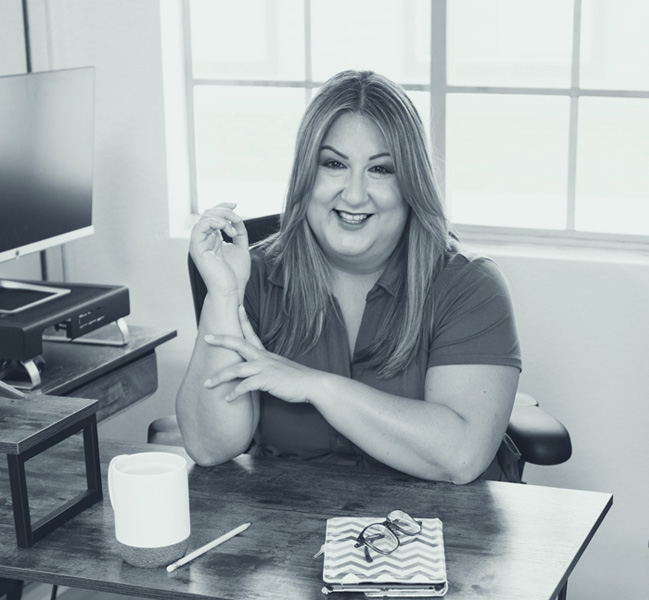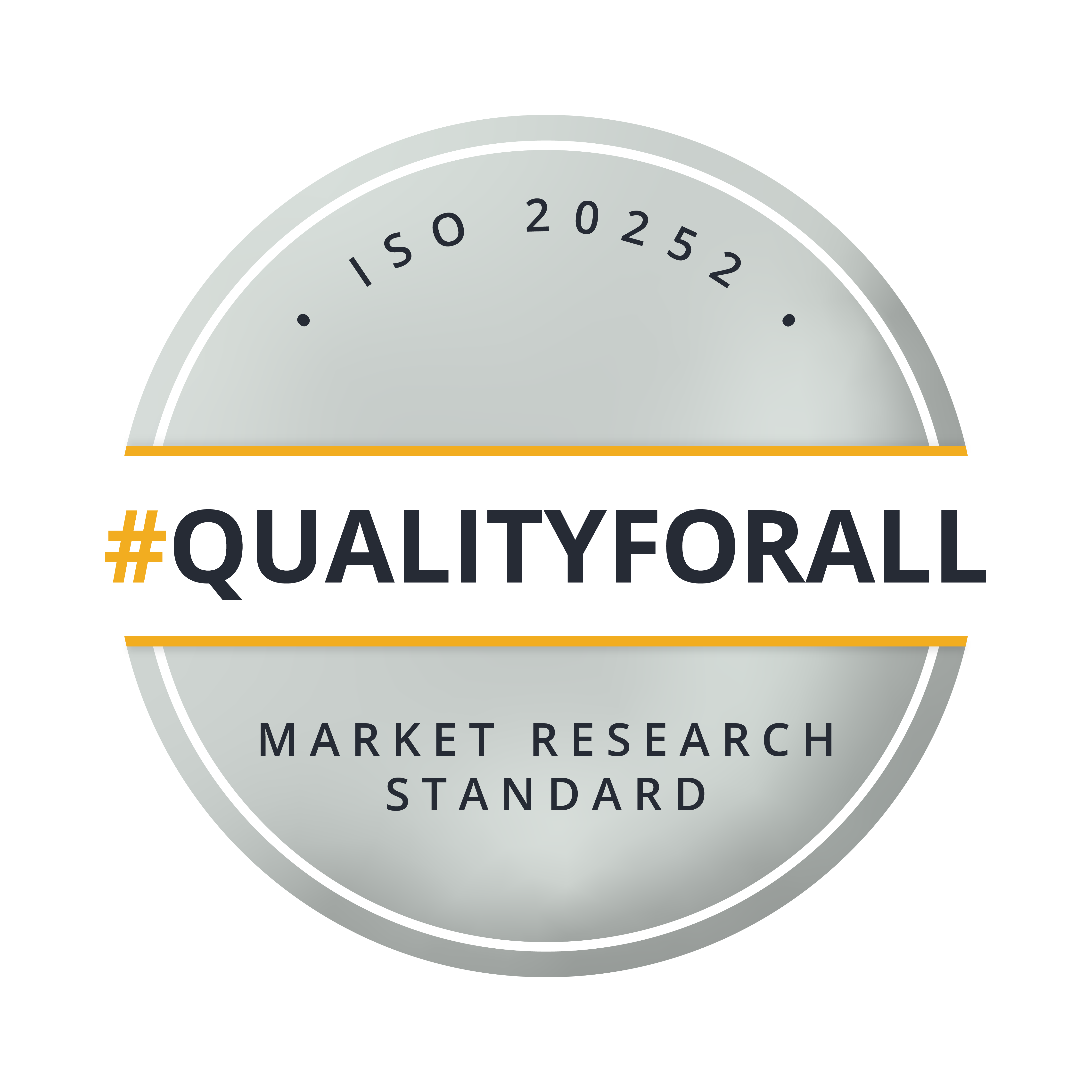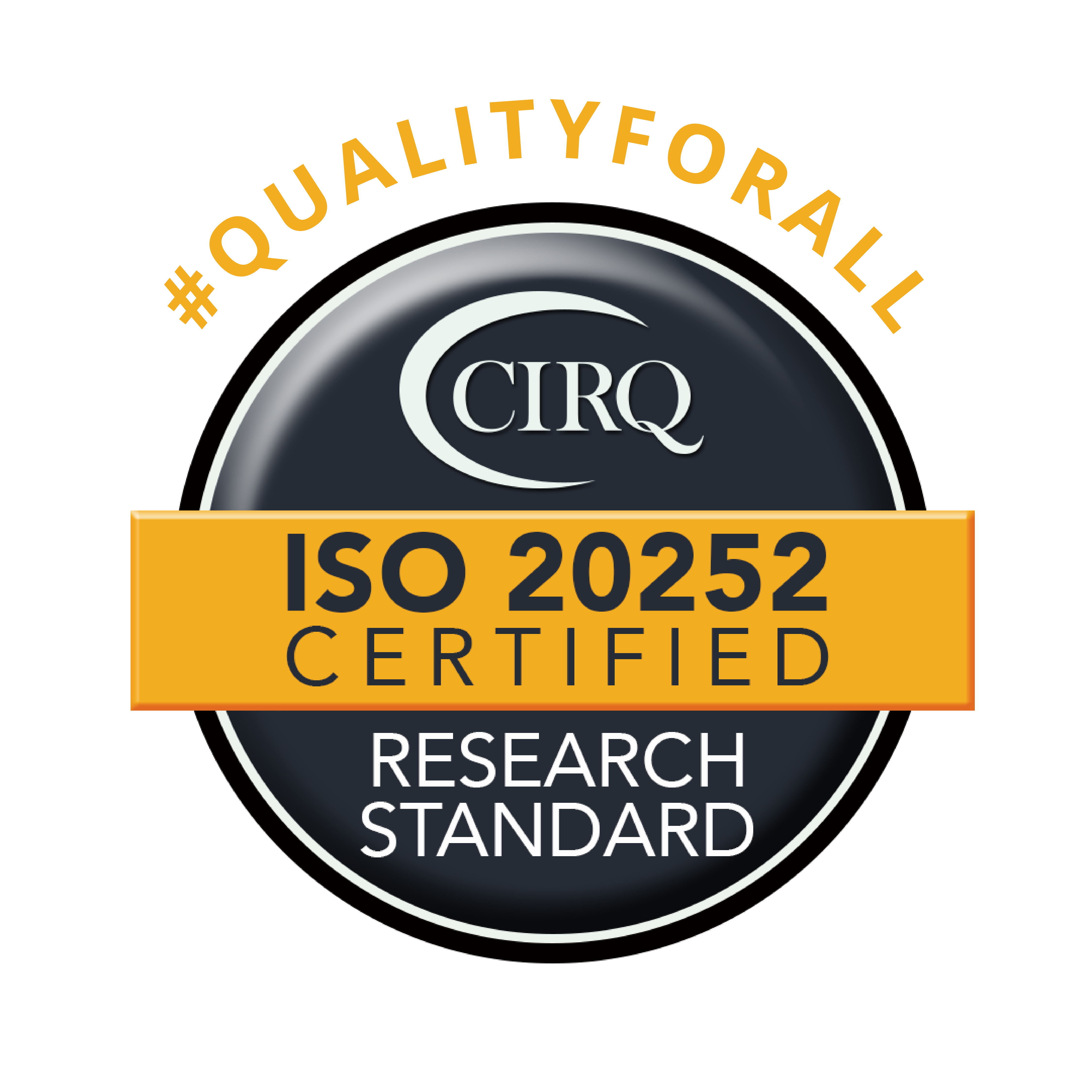
A chat about ISO with Olivia Trujillo, ISO Quality Manager at Full Circle Research
What is your role in regard to Full Circle Research and ISO certification?
In early 2019, I joined Full Circle as a Sr. Business Unit Leader. Two years later, leadership offered me the opportunity to add the role of ISO Quality Manager to my responsibilities. I eagerly accepted the promotion!
Why did Full Circle choose to become certified to ISO?
Adam [Weinstein] and Nate [Lynch], our Co-CEOs, were on the frontlines in some of the world’s first online market research divisions, developing the processes used to gain traction. These experiences inspired them to launch Full Circle: They knew they could do online research better. But as a young company, they needed a foot in the door. They had to prove to clients that their product was of higher quality than more established competitors. Nate had heard about the market research standards prior to launch, and made it a priority for their first year in business. By 2014, Full Circle was the first (and only) US-based online consumer sample provider certified to ISO 26362. When that standard was retired, we became certified to ISO 20252:2109.
Once Full Circle decided to get certified, how much time passed until the company’s audit?
Early 2014, Nate and Adam initiated the process. It took six months to prepare for their “self-assessment and gap analysis” (preparation stage to determine if they were ready for audit), which was in August. Our full initial audit and certificate were issued in October.
What preconceived notions did you have about ISO certification prior to becoming ISO Quality Manager?
Prior to becoming directly involved with CIRQ and our certification, I honestly didn’t know much about ISO. I knew how proud we were of the distinction and that it proved a worthwhile differentiator in our sales pitches, but I was unaware of where it fit into our quality processes. So when Nate first offered me the opportunity to lead our compliance efforts, I was nervous. I barely knew the basics—how could I take on the entire system? I thought that someone stepping into the role of ISO Quality Manager needed to have all the answers in regard to our processes and the standard. And I thought that I’d be preparing for our audits all by myself. Ends up, I was wrong in every case!
What benefits has Full Circle attained since becoming certified to ISO?
When bidding on a job where price and feasibility are equal across providers, our certification is typically what tips the scale in our favor. Even when our estimates are higher, I’ve seen clients choose Full Circle over others, simply because they know our processes are third-party verified. It’s happening more often these days: Clients and brands in greater numbers are recognizing the value of working with providers committed to delivering a proven quality product.
What benefits have you experienced personally since becoming associated with ISO?
Unquestionably, being our ISO Quality Manager has enhanced my performance as a business unit leader. I’m not a technical person, but my immersion into how our research process management system operates, as well as becoming educated on how we can continually improve, has increased my value as a member of our team. I now have a holistic understanding of how we do what we do, which creates an even more seamless service experience for our clients. And I can’t forget the development of a new skill set: The deepening of my expertise in compliance is a real resume booster. (Not that I’m going anywhere!)
What surprised you about the ISO process?
The level of support and encouragement. I quickly learned that my lack of expertise wasn’t a hindrance; it was a doorway! Juliana [Wood, CIRQ Managing Director] would proactively send me articles and seminars that would increase my knowledge base. She even helped me access an Internal Auditor Training course that focused on managing quality and compliance. Juliana also introduced me to other subject matter experts who helped guide my choices. As Full Circle’s systems are always evolving, and re-certification is an ongoing process, I continue to rely on these relationships to protect the best practices we’ve worked so hard to establish.
What’s an example of ISO being a saving grace?
The documentation required for certification has been instrumental as we scale. Because our processes are clearly outlined, we can easily and accurately replicate training for new hires. This means management doesn’t waste time reinventing the wheel, and clients are working with up-to-speed experts almost immediately. It’s how we’ve been able to grow so quickly.
What is it like working with your auditors?
Considering that audits are designed to expose holes in our system, you’d think the experience would be intimidating and stressful. Yet, it’s the opposite! Audits are rigorous, but not pass/fail. They are sample-based with a 5%-10% margin of error. This eliminates the stress of trying to achieve perfection and allows us to focus on integrating or enhancing processes that are the most efficient, productive and sustainable for us. Our CIRQ auditor, Ruth, wants us to succeed. She never chastises or condescends; she simply identifies where we can do better and how we can achieve these goals.
What is something you wish you knew prior to starting the process? (If you could tell your “younger” self.)
ISO may be a behemoth, but the 20252:2019 standard is not. Don’t let fear of the unknown stop you from reaping the benefits of the certification. And don’t wait to ask questions. Recognize the professional and personal growth inherent in the opportunity!
What’s the one thing you’d say to persuade a research company to consider certification?
If you care about quality insights, you should care about the market research standard. Nothing beats third-party verification for proving that your company is actively committed to best practices—and that can turn into real sales for you.


